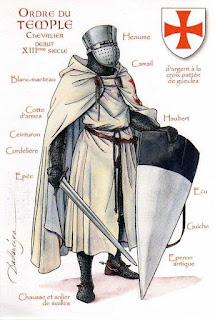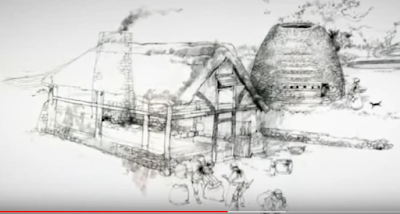History text to Tower of London construction phases
Showing posts with label Archeology. Show all posts
Showing posts with label Archeology. Show all posts
Tuesday, April 18, 2017
Friday, March 31, 2017
Saturday, March 18, 2017
Wednesday, March 15, 2017
Merovingian and Carolingian Kings of the Franks
Saturday, March 11, 2017
Saturday, March 4, 2017
Greek Theatre vs Roman
A Greek theater is not the same as a Roman theater. Ancient Greek theaters were very large, open-air structures that took advantage of sloping hillsides for their terraced seating. Because of drama's close connection with religion, theaters were often located in or near sanctuaries.
Greek
Roman
Friday, March 3, 2017
List of Knights Templar sites
List of Knights Templar sites
With their military mission and extensive financial resources, the Knights Templar funded a large number of building projects around Europe and the Holy Land, many of which structures remain standing today.
Thursday, February 23, 2017
Saturday, February 18, 2017
Norse Diety Skadi
 SKADI
SKADI
Skadi (pronounced “SKAHD-ee;” Old Norse Skaði) is a giantess and goddess in Norse mythology. Her name is either identical with the Old Norse common noun skaði, “harm,” or comes from another Germanic root preserved in the Gothic word skadus and the Old English sceadu, both of which mean “shadow.”[1] Her name is likely related to the name “Scandinavia,” but whether Skadi lent her name to the land-mass or vice versa is uncertain.[2]
Skadi lives in the highest reaches of the mountains, where the snow never melts. She’s an avid huntress, and her bow, snowshoes, and skis are her most often-mentioned attributes.[3][4][5]
She was once married to the god Njord. However, their marriage was a failure; Njord couldn’t stand the cold and dreariness of the mountains, and Skadi couldn’t stand the light and noise of Njord’s home by the seashore, so the two parted ways.
The giants (or, to use a word that more properly translates their Old Norse name, the “devourers”) are predominantly forces of darkness, cold, and death. Skadi fits this pattern by marriage, however, along with the frequency of her historical worship,[6] seem to suggest that she has a more benevolent demeanor than most of her kin, perhaps in a capacity as a patroness of winter subsistence activities.
and seems to have had particular associations with winter. Her status as a goddess
References:
[1] Turville-Petre, E.O.G. 1964. Myth and Religion of the North: The Religion of Ancient Scandinavia. p. 164.
[2] McKinnell, John. 2005. Meeting the Other in Norse Myth and Legend. p. 63.
[3] Eyvindr Skáldaspillir. Háleygjatal, stanza 4.
[4] Bragi Boddason. Ragnarsdrápa, stanza 20.
[5] Snorri Sturluson. The Prose Edda. Gylfaginning 23.
[6] Turville-Petre, E.O.G. 1964. Myth and Religion of the North: The Religion of Ancient Scandinavia. p. 165.
Labels:
Archeology,
Artwork,
blogs,
campaign,
Gamemastering,
Gaming,
new gods.,
Saxon
Thursday, February 16, 2017
Wednesday, February 15, 2017
Monday, February 6, 2017
Subscribe to:
Comments (Atom)

















































